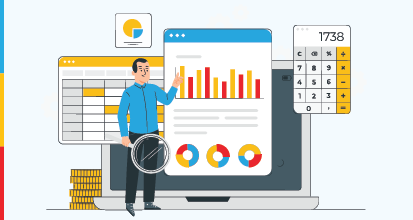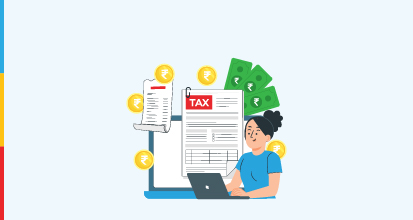2025-05-08
887 Views
3 minutes read
Share
An OTP has been sent to your mobile number

Sorry! No records Found
Thank you for your interest in our product. Our financial expert will connect with you shortly to help you choose the best plan.
House rent allowance is a popular head of allowance in your salary structure. This allowance not only compensates for the rental expenses but can also help you save tax.
Like anything else, knowing your tax possibilities with HRA will help you maximise your tax savings.
Rule 2A of the Income Tax Act guides the HRA exemption estimates. As per this rule, the least of the following will be exempt:
Salary = Basic salary + Dearness allowance + Commission based on % of turnover
For example, if you are working in the Delhi area and have the following salary structure in FY 2024-25:
| Particulars | Rs. |
| Basic Salary | 50,000 |
| DA (also part of retirement deductions) | 10,000 |
| HRA | 25,000 |
| Other Allowances | 80,000 |
| PF deductions | 7,200 |
| TDS | 5,000 |
And you have paid a steady rent of Rs 25,000 p.m., your HRA estimate will be as follows:
Since the lowest of the three amounts is Rs 2.28 Lakhs, this is the exempt amount. And, the remaining HRA, which is Rs 72,000, will be added to your taxable income for the FY.
If you are estimating your HRA benefit, take care of changes in the salary and monthly rent you have paid. You will need to estimate HRA exemption separately for the periods with:
For example, if you changed your employment with a new salary package in September 2020. You will need to estimate HRA exemption separately for:
Similarly, if you start paying a different amount of rent from January 2021, you will estimate HRA exemptions for the periods:
Click here to use - Income Tax Calculator
It is common nowadays to buy a house with a home loan and then start residing on rent for ease of work commute. In such situations, you may have a question about the exemptions you can claim. That is:
The answer is that you can claim both HRA and exemption under sections 24B and 80C for home loan payments. However, you will need to take care of the following:
- You are staying in a different city and paying rent
- You have reasonable cause to stay on the rent if residing in the same city as your house property
If HRA is not part of your salary but you have been paying rent, you can claim deduction under section 80GG. This is also a method of relief for the rent payments if you are self-employed.
Thus, use 80GG to improve your tax savings for the rent paid if:
Section 80GG allows you to claim an exemption equal to the least of the following three:
You can claim HRA exemption while staying with your parents, provided:
- You are paying rent to them
- They are showing the rent as their income from house property in their ITRs
Thus, although this transaction is possible, both ITRs could be necessary to claim the deductions without notice.
HRA is a good allowance that helps you save tax. But the fact is, you are spending a lot of money to save a small sum in taxes. In other words, despite the tax savings, you are not building any assets for your future.
Thus, using tax-saving investments will not only build future assets for you, but you can also continue to save tax. TheFollowing investments can help you reduce your taxable income by up to Rs 4 lakhs:
a) Buy a house property with a home loan (make sure to invest in a ready-to-move house for best results)
i. Deduction of up to Rs 2 lakhs on interest paid
ii. Deduction of up to Rs 1.5 lakhs on principal repayment
b) Invest in NPS for retirement (up to 1.5 lakhs + up to Rs 50,000 more on additional self contribution)
c) Invest in Unit Linked Insurance Plans, Public Provident Funds, Sukanya Sammriddhi Yojana and Equity Linked Savings Schemes
d) Use Guaranteed Savings Plans for very important family financial goals
While you are investing in these instruments, also ensure the long-term financial safety of your family with term life insurance. With HRA and other tax-saving investments, you can reduce your tax outflow to near zero if you have an income below Rs 10 lakhs.
Disclaimer - This article is issued in the general public interest and meant for general information purposes only. The views expressed in this blog are solely those of the writer and do not necessarily reflect the official policy or position of Canara HSBC Life Insurance Company Limited or any affiliated entity. We make no representations or warranties of any kind, express or implied, about the completeness, accuracy, reliability, suitability, or availability with respect to the blog or the information, products, services, or related graphics contained in the blog for any purpose. Any reliance you place on such information is therefore strictly at your own risk. You should consult with a qualified professional regarding your specific circumstances before taking any action based on the content provided herein.
We bring you a collection of popular Canara HSBC life insurance plans. Forget the dusty brochures and endless offline visits! Dive into the features of our top-selling online insurance plans and buy the one that meets your goals and requirements. You and your wallet will be thankful in the future as we brighten up your financial future with these plans.





